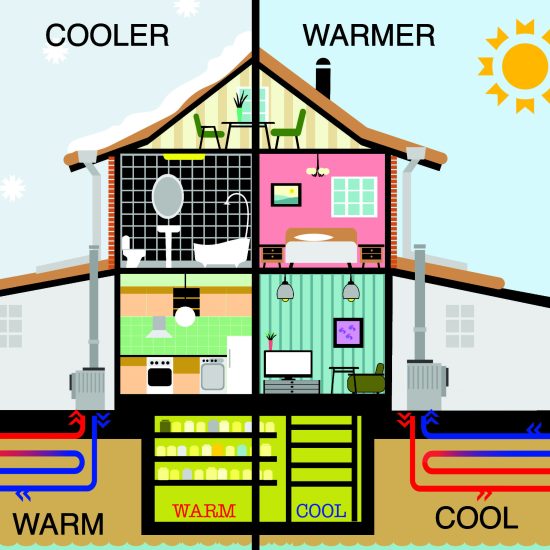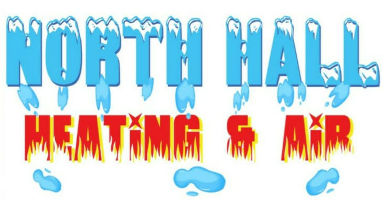Geothermal Systems: Components and Purpose
Geothermal HVAC systems are an alternative to traditional furnaces and air conditioning systems. These systems use geothermal heat pumps (GHPs) to move heat from one place to another using electricity. GHPs take advantage of the constant underground temperatures to efficiently heat and cool buildings.
A typical geothermal HVAC system consists of three main components: an underground heat collector, a heat pump, and a heat distribution subsystem. The underground heat collector, also known as a ground loop, is buried underground and extracts heat from the earth. The heat pump then transfers this heat to the building for heating or removes heat from the building for cooling. The heat distribution subsystem distributes the heated or cooled air throughout the building using ductwork or radiant floor systems.

Geothermal HVAC systems can be used to heat and cool single houses, businesses, or even entire communities. They can be installed in both urban and rural environments. Some geothermal systems can also supply hot water, further increasing their efficiency and usefulness.
Geothermal Systems Heat and Cool
Compared to air-source heat pumps, geothermal systems have several advantages. They are quieter, last longer, and require less maintenance. They also exchange heat directly from the earth, making them more efficient. However, geothermal systems are typically more expensive to install than traditional HVAC systems. Despite the higher upfront costs, geothermal systems offer significant long-term energy savings.
Geothermal heat pumps can be scaled up to meet the heating and cooling needs of entire communities. The U.S. Department of Energy has announced funding for community geothermal heating and cooling projects. This funding aims to support the design and deployment of geothermal district heating and cooling systems, with a focus on expanding community-scale geothermal and addressing environmental concerns.
For more information on different types of geothermal heat pumps, the DOE’s Energy Saver page provides detailed explanations.
To learn more about whether a geothermal HVAC system is right for you, depend on the experience and local knowledge
of North Hall Heating & Air – contact us today.


